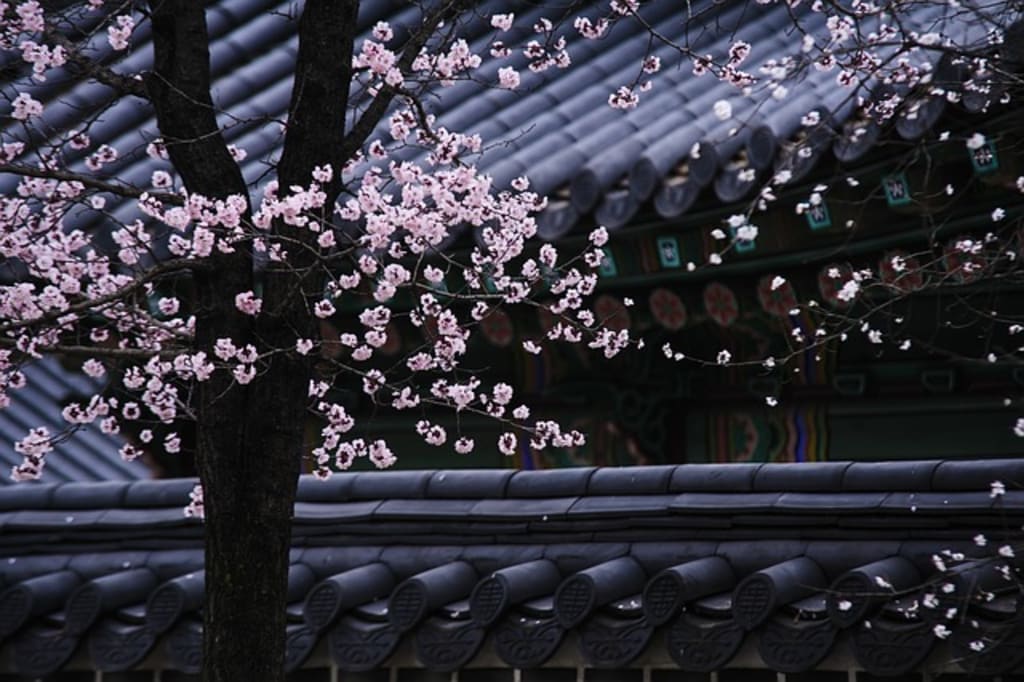35 South Korea Travel Tips
{The Ultimate Guide}

South Korea is a fascinating country with a unique blend of ancient and modern culture. Its bustling cities, stunning landscapes, delicious food, and friendly people make it a popular destination for travelers. If you’re planning a trip to South Korea, these 25 travel tips will help you make the most of your experience.
35 South Korea Travel Tips — {The Ultimate Guide}
- Plan ahead: South Korea is a popular destination, so make sure you book your flights and accommodations well in advance to avoid disappointment.
- Learn some Korean: While many South Koreans speak English, knowing a few basic phrases will help you navigate the country more easily.
- Get a Korean SIM card: If you plan to use your phone while in South Korea, getting a Korean SIM card will save you money on roaming charges.
- Dress modestly: When visiting temples or other religious sites, dress modestly and remove your shoes.
- Be prepared for long lines: Popular tourist attractions can have long lines, so be prepared to wait.
- Consider a T-Money card: A T-Money card is a convenient way to pay for public transportation.
- Book accommodations in advance: During peak travel season, it’s best to book accommodations in advance.
- Avoid major holidays: Many shops and attractions may be closed during major holidays.
- Download a translation app: There are many great translation apps available that can help you communicate with locals.
- Use a VPN: Internet access in South Korea can be restricted, so use a VPN to access blocked websites.
- Be mindful of your volume: South Koreans tend to be reserved, so be mindful of your volume in public.
- Try Korean barbecue: Korean barbecue is a popular dish and a must-try while in South Korea.
- Visit a traditional market: Traditional markets are a great way to experience local culture and buy souvenirs.
- Learn about Korean history: South Korea has a rich history, so take time to learn about it.
- Don’t tip: Tipping is not customary in South Korea, so don’t feel obligated to tip.
- Be mindful of etiquette: South Koreans value politeness and respect, so be sure to follow local customs and etiquette.
- Try the street food: South Korea is famous for its delicious street food, so be sure to try as many different dishes as possible.
- Visit the palaces: South Korea has many beautiful palaces that are open to the public, including Gyeongbokgung, Changdeokgung, and Deoksugung.
- Explore the markets: South Korea’s markets are a shopper’s paradise, offering everything from clothing and accessories to food and souvenirs.
- Visit a traditional village: South Korea has several traditional villages that offer a glimpse into the country’s past, including Bukchon Hanok Village and Andong Hahoe Folk Village.
- Go hiking: South Korea has many beautiful hiking trails, including the famous Bukhansan National Park.
- Visit Jeju Island: Jeju Island is a popular tourist destination known for its stunning natural beauty, including waterfalls, beaches, and volcanic craters.
- Take a temple stay: South Korea has many Buddhist temples that offer visitors the opportunity to experience temple life firsthand.
- Visit a jimjilbang: Jimjilbangs are traditional Korean bathhouses that are popular with locals and tourists alike.
- Take a cooking class: South Korean cuisine is delicious, and taking a cooking class will help you learn how to make some of the country’s most popular dishes.
- Visit a museum: South Korea has many excellent museums, including the National Museum of Korea and the Leeum Samsung Museum of Art.
- Take a cruise: South Korea’s coastline is stunning, and taking a cruise is a great way to see it.
- Try the traditional Korean tea: South Korea is known for its traditional teas, including green tea, barley tea, and ginger tea.
- Visit a theme park: South Korea has several theme parks, including Everland and Lotte World, that offer rides, attractions, and entertainment for all ages.
- Take a K-drama tour: Korean dramas are popular around the world, and many filming locations are open to visitors.
- Learn about Korean history: South Korea has a rich and fascinating history that is worth exploring, including the Joseon Dynasty and the Korean War.
- Take a scenic drive: South Korea has many scenic drives, including the Haenam-gun Seomjin River Road and the Namhansanseong Fortress Scenic Drive.
- Visit the DMZ: The Demilitarized Zone between North and South Korea is a unique and fascinating place to visit.
- Attend a festival: South Korea is home to many festivals throughout the year, including the Boryeong Mud Festival, the Jinju Lantern Festival, and the Busan International Film Festival.
- Be prepared for the weather: South Korea has four distinct seasons, so be sure to pack appropriately for the time of year you will be visiting.
Best 10 Places to Visit in South Korea:
- Seoul: South Korea’s bustling capital city is a must-visit for any traveler. From its historic palaces to its modern skyscrapers, there is something for everyone in Seoul.
- Jeju Island: Jeju Island is a popular tourist destination known for its stunning natural beauty, including waterfalls, beaches, and volcanic craters.
- Gyeongju: Gyeongju was once the capital of the ancient Silla kingdom and is now a UNESCO World Heritage site, with many historic temples, tombs, and ruins.
- Busan: South Korea’s second-largest city is a vibrant and bustling port town, known for its beautiful beaches, seafood, and cultural attractions.
- Andong: Andong is a traditional city that is famous for its preserved historic houses, traditional food, and folk festivals.
- Suwon: Suwon is home to the impressive Hwaseong Fortress, a UNESCO World Heritage site that was built in the 18th century.
- Tongyeong: Tongyeong is a coastal city that is known for its beautiful scenery, islands, and seafood.
- Jeonju: Jeonju is a traditional city that is famous for its hanok (traditional Korean houses), traditional food, and cultural attractions.
- Chuncheon: Chuncheon is a scenic city that is known for its beautiful lakes, mountains, and nature reserves.
- Daegu: Daegu is a vibrant and modern city that is known for its shopping, nightlife, and cultural attractions.
10 South Korea Traditions
- Bowing: Bowing is an important tradition in South Korea and is a sign of respect and humility.
- Hanbok: Hanbok is the traditional Korean dress that is still worn on special occasions and festivals.
- Ancestral rituals: Ancestral rituals are performed to honor and show respect to ancestors.
- Kimchi: Kimchi is a fermented vegetable dish that is a staple in Korean cuisine and has been a tradition for over a thousand years.
- Tea ceremonies: Tea ceremonies are a traditional way of serving and drinking tea and are considered an important social event.
- Traditional games: Traditional games, such as Yut Nori and Tuho, have been played in Korea for centuries and are still enjoyed today.
- Seollal: Seollal, or Lunar New Year, is one of the most important holidays in Korea and is celebrated with ancestral rituals, food, and family gatherings.
- Chuseok: Chuseok, or the Harvest Moon Festival, is another important holiday in Korea and is celebrated with food, games, and traditional clothing.
- Taekwondo: Taekwondo is a traditional Korean martial art that emphasizes discipline, self-defense, and physical fitness, and has become a popular sport worldwide.
- Traditional masks: Traditional Korean masks, such as the Hahoe and Talchum masks, are used in traditional dances and dramas and represent different characters and emotions.
Best 10 Essentials to Take When Traveling to South Korea:
- Passport and Visa: Be sure to bring your passport and any necessary visas for entry into South Korea.
- Korean Won: It’s always a good idea to have some local currency on hand for taxis, food, and souvenirs.
- Adapter and Voltage Converter: South Korea uses Type C and F electrical outlets, so be sure to bring the appropriate adapter and voltage converter if needed.
- Comfortable Shoes: South Korea has many beautiful sights to see, so be sure to bring comfortable shoes for walking and hiking.
- Sunscreen and Insect Repellent: Protect yourself from the sun and insects with these essential items.
- Korean Phrasebook: Learning a few basic phrases in Korean will help you communicate with locals and make your trip more enjoyable.
- Travel Insurance: It’s always a good idea to have travel insurance to protect yourself in case of unexpected events.
- Medications: Be sure to bring any necessary medications with you, along with copies of your prescriptions.
- Warm Clothing: South Korea can get very cold in the winter, so be sure to bring warm clothing if you are visiting during this time.
- Portable Wi-Fi Device: Having access to the internet while traveling can make it easier to navigate and stay connected with loved ones back home.
10 Interesting Facts About Korea
- Korea has the world’s fastest internet speeds, with an average download speed of 28.6 Mbps.
- South Korea is the largest consumer of instant noodles in the world, with an average of 69 servings per person per year.
- In South Korea, it is common to count a baby as being one year old at birth, based on the lunar calendar.
- Korea is the birthplace of Taekwondo, a martial art that emphasizes speed and agility.
- South Korea has the highest suicide rate among OECD countries, but the government has implemented various measures to address this issue.
- Korea is home to the world’s largest indoor water park, Ocean World, which covers over 130,000 square meters.
- South Korea is the only country in the world that has a commercial dog cloning service, which allows pet owners to create a genetically identical copy of their beloved pet.
- In Korea, chopsticks are traditionally made of metal, while in China and Japan they are typically made of wood.
- Korea is the birthplace of the “K-Pop” music genre, which has gained immense popularity around the world in recent years.
- The Korean alphabet, known as Hangul, was created in the 15th century under the reign of King Sejong the Great and is considered one of the most efficient writing systems in the world.
South Korea Rules for Foreigners:
- Visa Requirements: Visitors from many countries are allowed to enter South Korea without a visa for up to 90 days, but be sure to check the latest requirements before traveling.
- Identification: Visitors are required to carry identification at all times while in South Korea.
- Alcohol and Smoking: The legal drinking age in South Korea is 19, and smoking is banned in public places.
- Driving: Visitors can drive in South Korea with an International Driving Permit, but should be aware that traffic can be congested and driving can be challenging in some areas.
- Cultural Differences: Visitors should be respectful of South Korean culture and customs, including removing shoes when entering homes and temples, bowing to elders, and covering up tattoos in public.
- Crime: South Korea is generally a safe country, but visitors should be cautious in crowded areas and watch out for pickpockets.
- Currency Exchange: Visitors should exchange currency at banks or exchange offices, as exchange rates may not be favorable at hotels or airports.
Conclusion
South Korea is a fascinating and vibrant country that offers visitors a wealth of cultural experiences and natural beauty. By following these 25 travel tips, including the best places to visit, essential items to pack, and rules for foreigners, you can make the most of your trip to South Korea. Remember to be respectful of local customs and culture, and have a safe and enjoyable journey.
FAQs
Q: What do I need to know before traveling to Korea?
A: Before traveling to South Korea, it is important to research visa requirements, currency exchange rates, and local customs and culture. You should also be aware of any health and safety concerns, such as natural disasters or crime rates.
Q: How much should I prepare for a trip to Korea?
A: The cost of a trip to South Korea will depend on various factors, including the length of your stay, your accommodations, and your activities. On average, budget travelers should expect to spend around $50–70 USD per day, while mid-range travelers can expect to spend $100–150 USD per day.
Q: How do I prepare for a trip to Seoul?
A: To prepare for a trip to Seoul, it is important to research the city’s top attractions, transportation options, and local customs. You should also consider purchasing a T-Money card for convenient public transportation, and downloading a translation app to help communicate with locals.
Q: Which month is best to visit South Korea?
A: The best time to visit South Korea depends on your preferences and travel goals. Generally, spring (April to June) and fall (September to November) offer mild temperatures and beautiful foliage, while summer (July to August) can be hot and humid, and winter (December to February) can be cold and snowy.
Q: Is Seoul English friendly?
A: While English is not widely spoken in Seoul, many signs and menus are translated into English, and most tourist attractions have English-speaking staff. It can be helpful to learn some basic Korean phrases to communicate with locals.
Q: How many days in Korea is enough?
A: The ideal length of a trip to South Korea will depend on your interests and travel goals. Generally, a minimum of 5–7 days is recommended to see the top attractions in Seoul and other popular destinations, but you could easily spend several weeks exploring the country.
Q: How much money do I need for 7 days in South Korea?
A: Budget travelers can expect to spend around $350–500 USD for a week in South Korea, while mid-range travelers should budget around $700–1,000 USD. This includes accommodations, food, transportation, and activities.
Q: Is Seoul expensive as a tourist?
A: Seoul can be expensive for tourists, especially in terms of accommodations and dining. However, there are many budget-friendly options available, including hostels, street food, and free attractions. With careful planning, it is possible to visit Seoul on a budget.
You May Like this:
20 Best Places For Digital Nomads {UPDATED 2023}






Comments
There are no comments for this story
Be the first to respond and start the conversation.